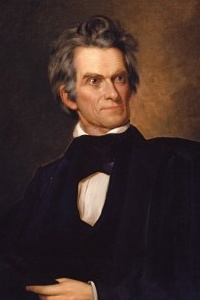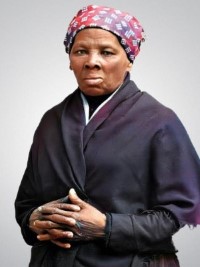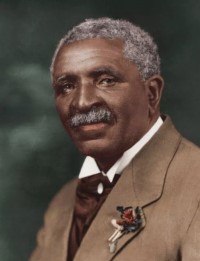| By: Paul S. Cilwa | Viewed: 5/2/2024 Posted: 2/20/2024 |
Page Views: 477 | |
| Topics: #Autobiography #BlackHistoryMonth #History #Philosophy | |||
| Either we are all human, or none of us are. | |||

As I age (excuse me, mature) I find myself pondering a lot of things
that I've always taken for granted. One of them is the meaning of the word, human
.
It's one of the most common and familiar words in the English language, but also one of
the most complex and controversial. What does it mean to be human? How do we define
and identify ourselves and others as human? How do we use the word human
to divide
or include different beings? How has the meaning of being human changed over time and
across cultures? And where might its continued evolution take us in the direction of
an expanded collective consciousness?
The Origin and Evolution of the Word Human

Many indigenous peoples around the world have names for themselves that translate to
the people
or something similar. For example, the Navajo people's name for
themselves is Diné, which means the people
in their language.
The Inuit, a group of indigenous peoples who live in the Arctic regions of Canada,
Greenland, Alaska, and Russia have also named themselves the people
;
the same is true for the Maori, Zulu, Quechua, Sami, and the Nama peoples,
to name a few more.
What they had in common was isolation. During the time they developed as a culture and distinct group, they named themselves something that was both intensely personal and at the same time distinquished themselves from everything else in their world.
But then the greater outside world of humanity encroached. Colonizers used the word human
both to justify enslaving the original occupants and to create a sense of unity by
including the conquered in the definition. The Romans were experts at both.

In fact, the word human
comes from the Latin word humanus
,
which means of man, human, humane, kind, gentle, polite
. It is
related to the Latin word homo
, which means human being, man
.
The word homo
itself comes from a Proto-Indo-European root *dhghem-,
which means earth, ground
. This root also gave rise to words like
humus
, humble
, and humiliate
.
This suggests that the word human
originally implied a connection to the earth
and a sense of modesty or vulnerability. However, over time, the word human
also
acquired other meanings and connotations, such as intelligence, creativity, morality,
or dignity, that distinguished humans from other animals or beings. For example,
in ancient Greek philosophy, the word anthropos
, which means man, human
,
was used to define the essence of human nature, as opposed to the nature of animals,
gods, or machines. Aristotle, for instance, defined humans as rational animals
,
or political animals
, who have the capacity for reason, language, and society.
The word human
has also been influenced by different languages, cultures, and
religions, that have shaped the way people perceive themselves and others as human.
For example, in Hebrew, the word adam
, which means man, human
, is derived from
the word adamah
, which means ground, earth
. This reflects the biblical story
of creation, in which God formed the first human, Adam, from the dust of the ground.
In Arabic, the word insan
, which means human
, is derived from the word nasiya
,
which means to forget
. This reflects the Islamic belief that humans are forgetful
of their origin and purpose, and need to remember God and follow his guidance.
In Chinese, the word ren
, which means human
, is composed of two strokes,
one representing a person, and the other representing the number two. This reflects
the Confucian value of humaneness, or benevolence, which is based on the relationships
and obligations between people.
Division

The word human
is not only a descriptive or explanatory term, but also a normative
or evaluative one. The word human
is often used to divide or exclude different beings
who do not fit the criteria or standards of being human, or to include or embrace
different beings who share some qualities or characteristics with the people doing the
assessment. The word human
is also often used to justify or challenge certain actions
or policies that affect the rights, interests, or values of different beings.
The word human
is not a neutral or harmless term, but a powerful and influential one,
that has profound implications and consequences for the lives and well-being of different beings.
One of the most tragic and shameful examples of how the word human
has been used to
divide or exclude different beings is the history of slavery and racism. For centuries,
white people enslaved, exploited, and oppressed Black people, and other people of color,
by denying or diminishing their humanity or personhood. White people used various
arguments, such as religion, science, history, or law, to claim that Black people
were not human, or that they were somehow intrinsically inferior to white people.

For example, John C. Calhoun, a politician and statesman from South Carolina,
defended slavery as a positive good
and a natural
condition for Black people.
He wrote: Never before has the black race of Central Africa, from the dawn of history
to the present day, attained a condition so civilized and so improved, not only
physically, but morally and intellectually [by slavery].
George Fitzhugh, a sociologist and
pro-slavery advocate from Virginia, argued that Black people were a childlike and
inferior race
who needed the protection and guidance of white masters.
He wrote: The negro is but a grown up child, and must be governed as a child,
not as a lunatic or criminal. The master occupies towards him the place of parent or guardian.
Josiah Nott, a physician and ethnologist from Alabama, claimed that Black people were a
separate and inferior species (!) from white people, based on his studies
of
anatomy, physiology, and pathology. He wrote: The negro is not a human being in
the same sense that a white man is; he is not a human being at all, but a distinct
and inferior species of animal.
James Henry Hammond, a politician and plantation owner from South Carolina,
coined the term mudsill theory
to describe his belief that slavery was necessary
for the prosperity and stability of society. He wrote: In all social systems there
must be a class to do the menial duties, to perform the drudgery of life. That is,
a class requiring but a low order of intellect and but little skill. Its requisites
are vigor, docility, fidelity. Such a class you must have, or you would not have
that other class which leads progress, civilization, and refinement. It constitutes
the very mud-sill of society and of political government; and you might as well
attempt to build a house in the air, as to build either the one or the other,
except on this mud-sill.
These are just some of the examples of how white people used the word human
to
dehumanize Black people, and to rationalize and normalize slavery and racism.
However, these arguments were not only false and illogical, but also immoral and evil.
They violated the dignity and humanity of Black people, and caused immense suffering and injustice.
They also contradicted the principles and values of democracy, liberty, and equality,
that white people claimed to uphold and defend. They also ignored or dismissed the
achievements, inventions, and contributions of Black people, who proved their humanity
and personhood by their actions and words to anyone who was actually, you know,
paying attention.

For example, escaped slave Harriet Tubman was an abolitionist, a conductor of
the Underground Railroad, a spy and a scout for the Union Army, a nurse, a suffragist,
and a humanitarian. She escaped from slavery and helped free hundreds of enslaved people.
She also led a raid that liberated more than 700 enslaved people in South Carolina.
She was known as the Moses of her people
and General Tubman
. She was a woman of
courage, faith, and compassion; arguably more human
than the enslavers.

Frederick Douglass, who was an orator, a writer, an abolitionist, a diplomat, and a social reformer, escaped from slavery and became one of the most influential and eloquent speakers and writers of his time. He wrote several autobiographies, edited newspapers, and advocated for the rights of Black people, women, and Native Americans. He also advised several presidents, including Abraham Lincoln, and served as the U.S. minister to Haiti. He was a man of wisdom, vision, and dignity.

George Washington Carver, who was an agricultural scientist and inventor who developed hundreds of products using peanuts, sweet potatoes, and soybeans, was born into slavery, but he pursued education and earned a masterís degree in agricultural science from Iowa State University. He taught and conducted research at Tuskegee University for decades, and helped improve the lives of many farmers and the environment. He was also a devout Christian and a humanitarian. He received many honors and awards for his work, and became one of the most famous and respected Black Americans in history.
And the thing is, these were not outliers. Black people have consistently made positive contributions to humanity as a whole, certainly on a par with any other random group and more than some. I mean, c'mon…Rock 'n' Roll, guys!
- Pierre Charles L'Enfant (1754-1825)
the French-American military engineer who designed the basic plan for Washington, D.C.
- Lewis Howard Latimer (1848-1928)
He was an inventor and draftsman who improved the light bulb by creating a carbon filament that made it last longer and cheaper to produce (Edison got the credit). He also helped draft the patent for Alexander Graham Bell's telephone.
- Marie Van Brittan Brown (1922-1999)
She was a nurse and inventor who created the first home security system in 1966, along with her husband Albert Brown. Their system used a camera, a monitor, a two-way microphone, and a remote control to allow the homeowner to see and communicate with visitors at the door.
- Patricia Bath (1942-2019)
She was an ophthalmologist and inventor who developed a device and technique for cataract surgery that used a laser to dissolve the cloudy lens and restore vision. She called her invention the Laserphaco Probe, and she patented it in 1988. She also founded the American Institute for the Prevention of Blindness.
- Lonnie Johnson (1949-present)
He is an engineer and inventor who created the Super Soaker, one of the most popular toys of all time. He also worked for NASA and the U.S. Air Force, developing projects such as the Galileo mission to Jupiter, the Mars Observer spacecraft, and the stealth bomber program. He currently runs his own company, Johnson Research and Development, where he works on renewable energy solutions.
So, you have to ask yourself: How could the enslavers have been so wrong? The obvious
answer, of course, is greed. They should have known better, but like today's Trump supporters,
they didn't want to! And so they happily threw around the word human
as if they owned it.
Expanding Humanity
So, whatever word one uses (in English it's human
) to describe the entirety of
one's fellow beings, once used to describe one's own very isolated cultural or ethnic group,
has expanded to include every member of our own species. And now we find ourslves poised
at the brink of pondering whether members of other species, or even entities that are
not biological at all, could be considered human
. Obviously, there is no definitive
answer to this question, as different people may have different opinions and criteria
for what constitutes a human or a person. Some possible factors that could be considered are:
- Biological
whether the being belongs to the same species, genus, family, or order as humans, or shares a common ancestor with humans.
- Cognitive
whether the being has intelligence, consciousness, self-awareness, rationality, creativity, or emotions.
- Linguistic
whether the being can use or understand language, symbols, signs, or gestures.
- Moral
whether the being has rights, duties, responsibilities, or dignity, or deserves respect, compassion, or justice.
- Social
whether the being can form relationships, cooperate, or interact with humans or other beings.
- Spiritual
whether the being has a soul, a spirit, or a divine nature.
Depending on how these factors are weighed and evaluated, different beings may or may not qualify
as human
or, at least, a person
. For example, some people may argue that dogs
and parrots are not human, but they are persons, because they can communicate, feel emotions,
and form bonds with humans. Others may disagree and say that dogs and parrots are not persons,
because they lack intelligence, rationality, or morality. Similarly, some people may argue
that A.I. is not human, but it could be a person, if it can demonstrate intelligence, consciousness,
or creativity. Others may disagree and say that A.I. is not a person, because it lacks
emotions, morality, or spirituality.
Are Humans Persons?
The words human
and person
have different origins and meanings, but they also share some
common aspects. While human
comes from the Latin word for man
, person
, also
from Latin, originally meant a character in a mask
or a character in a play. Specifically,
persona
was the word for the mask worn by Roman actors. So, while we generally use
human
to describe a member of a single biological species, person
refers to a human
being as a legal, moral, or social entity that can be treated as a distinct or unique
individual.
Do we consider Neanderthals and Denisovans to be humans? Would we consider them to be people? How about chimps and other great apes? Why? If it's because of our shared DNA, why stop there? Why not include marmots, dogs, dolphins, or members of Donald Trump's family?
From a biological perspective, we can use the concept of species to define what is human and what is not. A species is a group of organisms that can interbreed and produce fertile offspring. There is evidence that Neanderthals, Denisovans, and modern humans did interbreed and exchange genes in the past, which is why some scientists argue that Neanderthals and Denisovans are not distinct species, but subspecies or populations of our own Homo sapiens. So, if they were around today, we can expect that some Homo sapiens would be enslaving them, while others would be trying to protect their rights.
As with so many things, it's a spectrum, not a binary choice, if we use genetic similarity to base the decision. All Homo sapiens, by definition, are 100% human; chimpanzees and bonobos, about 98% human, and on down the line through the dogs, dolphins, and marmots all the way down to Donald Trump and his spawn.
Disposable People
One of the most widely regarded and influential episodes of Star Trek: The Next Generation,
The Measure Of A Man
explores the themes of artificial intelligence, personhood, and human rights.
In this episode, the sentient android Data is ordered by a Commander Maddox to undergo an experimental procedure
that would allow Starfleet to create more androids like him. Data refuses, fearing that the
procedure would destroy his individuality and that the new androids would be treated as property.
A hearing is convened to determine if Data has the right to refuse or if he is, instead, the
property of Starfleet. Captain Picard, as Data's advocate, argues that Data is a person,
with self-awareness, intelligence, and free will. The prosecution argues that Data is a machine,
with no emotions, feelings, or soul. The hearing ultimately rules that Data is a person and
has the right to choose his own destiny.
But, before that, Picard himself isn't sure what position he should even take. He
consults with his friend, Guinan, about the implications of Commander Maddox's plan to
create more androids like Data. She warns Picard that if Maddox succeeds, he will create
a new race of disposable beings
who will be exploited and oppressed by the Federation. She says:

Consider that in the history of many worlds, there have always been disposable creatures.
They do the dirty work. They do the work that no one else wants to do because it's too
difficult or too hazardous. And an army of Datas, all disposable…You don't have
to think about their welfare, you donít think about how they feel. Whole generations…of
disposable people…
Conclusion
The word human
is not a simple or static term, but a complex and dynamic one, that
reflects the diversity and complexity of human existence. The word human
has also
een influenced by different languages, cultures, religions, and contexts, that have
shaped the way people perceive themselves and others as human. The word human
is not
only a descriptive or explanatory term, but also a normative or evaluative one, that has
profound implications and consequences for the lives and well-being of different beings.
The word human
has been used to divide or exclude different beings who do not
fit a group's criteria or standards of being human, such as enslaved people,
indigenous people, women, children, disabled people, or non-human animals.
The word human
has also been used to justify or challenge certain actions or
policies that affect the rights, interests, or values of these beings. The word human
has also been used to include or embrace different beings who share some qualities
or characteristics with humans, such as extraterrestrials, artificial intelligence,
or cyborgs. The word human
has also been used to acknowledge or respect the rights,
interests, or values of these beings.
The word human
is not a fixed or objective term, but a dynamic and subjective one,
that can change and evolve over time and across situations. The word human
is not a final or definitive term, but a provisional and tentative one, that can
be challenged and redefined by new evidence and experiences. The word human
is
not a closed or exclusive term, but an open and inclusive one, that can accommodate
and embrace new forms and expressions of being.
The word human
is a powerful and influential term, that can shape our thoughts,
feelings, and actions towards ourselves and others. The word human
is also a
challenging and inspiring term, that can invite us to question our assumptions,
expand our horizons, and improve our relations. The word human
is a term that we
should use with care and responsibility, with curiosity and humility, and with
compassion and solidarity.
To do so, after all, is only human.






